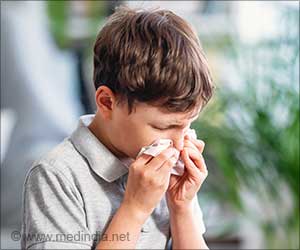
‘Potentially active viruses may sometimes persist beyond a 10 day period, and could pose a potential risk of onward transmission.’
Tweet it Now
The study, published in the international Journal of Infectious Diseases, found that 13 percent of people still exhibited clinically-relevant levels of virus after 10 days, meaning they could potentially still be infectious. Some people retained these levels for up to 68 days or more than two months. The team believe this new test should be applied in settings where people are vulnerable, to stop the spread of Covid-19.
"While this is a relatively small study, our results suggest that potentially active viruses may sometimes persist beyond a 10 day period, and could pose a potential risk of onward transmission. Furthermore, there was nothing clinically remarkable about these people, which means we wouldn't be able to predict who they are," said Professor Lorna Harries, of the University of Exeter Medical School.
Conventional PCR tests work by testing for the presence of viral fragments. While they can tell if someone has recently had the virus, they cannot detect whether it is still active, and the person is infectious.
The test used in the latest study however gives a positive result only when the virus is active and potentially capable of onward transmission.
Advertisement
Advertisement









